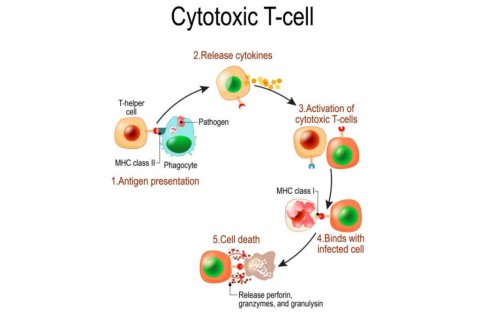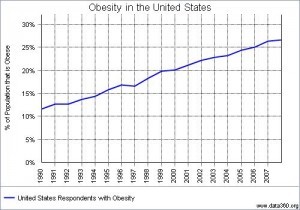Growing up we always associated smoking with cancer. We'd have the school assemblies to prevent us from lighting up. The packages of cigarettes had images of disgusting gum and tooth disease caused by smoking. And we all knew a relative or loved one that was a smoker and passed away from cancer. That could all change. Obesity could overtake smoking as the main cancer risk by 2040 in women and soon after in men. And with the pandemic this isn't getting any better. Since this time last year most people have put on a few pounds, are less active and eating more junk food. And when the food delivery services show up in our neighbourhood it's usually bringing fast food. Combine this with more people quitting smoking and it's easy to see how obesity will overtake smoking as a greater risk for cancer. So what's the big deal with obesity? Well fat isn't inert tissue that gets added to the body and has no effects. It doesn't just sit there quietly but is active. It sends signals to other tissues and organs that affect growth, metabolism and reproductive processes. When we are obese we are vulnerable to tissue damage and developing tumours. And there are least 12 types of cancer linked to carrying excess weight. Regular exercise is important for cancer prevention specifically breast and colon cancer. A recent study in the UK involved exercising mice three times per week for 30 minutes. These mice showed lower levels of inflammation, which can lead to the development of tumours. As well, the mice that exercised improved their metabolism, had less fat in their livers and moved more quickly. In the UK there are 135,000 new cancers per year (about 4 in 10) deemed to be preventable. Exercise can be a great way...
Positive Effects of Exercise on Cancer
- Chris Collins
- Fitness
- 1612 Hits
- 0 Comments
-
We all know someone that has had cancer. In our family my dad and sister are cancer survivors. And although this disease is very close to all of us we often don't know what to do when it comes to exercise and cancer. Should you exercise or not? Does it help or harm? I'm not an oncologist and so don't take these ramblings as medical advice. But I still keep an eye on the research and stay informed as more information on this topic becomes available. A paper out of the Karolinska Institute in Sweden gives some promise for exercise with cancer. The authors looked at over 100 studies, involving over one million adults and 13 different types of cancer. What they found was that exercisers had better outcomes, related to their cancer, than those who didn't exercise. It appeared that exercise helped prevent the onset of cancer. And it helped the body fight back more effectively against the cancer. So how does this happen? Well it appears there are particular immune cells, cytotoxic T cells, that are positively influenced by the effects of exercise. These immune cells, aka killer T cells, have enhanced function with individuals that exercise. Representation of the role of T cells Source: https://www.thoughtco.com/t-cells-meaning-373354 Researchers have transferred the T cells of mice that exercise, to non-exercising mice, and seen tumour reductions. More specifically it appears that certain metabolites are produced during exercise that play a role. Lactate, in particular, seems to bolster T cell activity. When mice where given sodium L-lactate there was an increase in T cell activity and greater decrease in tumour growth. While this all sounds promising there are a few things to keep in mind: The papers reviewed and cited included adults with cancer. We might expect similar results with children but the...
Cancer Seminar Recap
- Chris Collins
- Fitness
- 1458 Hits
- 0 Comments
-
Hey everyone, it's Coach Jane here. I hope you all had a great Thanksgiving weekend. I just wanted to recap the Fitness for Cancer seminar that we presented earlier this week.It ran on Tuesday and Wednesday evening and basically over-viewed the benefits for exercise during and after cancer treatment.As most of you know, exercise is important for healthy lifestyles, and there is some research that suggests that it can help prevent certain cancers from occurring (although much more research is still needed to fully confirm this). However, exercise during cancer treatment is very important as it helps to reduce negative side effects from treatment, increase energy levels, and preserve physical and mental health. In the presentation, we covered these topics in detail, as well as discussed the common misconceptions, fears, and precautions that many people have around exercising during treatment.***Chris here...A couple of my key takeaways include:Fitness is recommended by all health associations globally (Canada, US, Australia etc) for all types of cancer. Sure there may be modifications or things to keep in mind with certain patients. But this is no different than programming for any type of client.[caption id="attachment_5814" align="aligncenter" width="300"] A pie chart showing the percentage of cancer patents that would benefit from exercise.The other comment that stuck was that exercise can be beneficial for preventing secondary types of cancer. For example, with exercise there is increased circulation and this facilitates digestion. As food is moved along at a more optimal rate this helps minimize the the potential for cancers such as rectal.Now back to Jane...***I am planning on creating an exercise group for people going through or recently finished cancer treatment that would like to increase their health with movement. If you know anyone who you think would benefit from attending this fitness group, feel free to pass...
More Reasons to Reduce Your Sugar Intake
- Chris Collins
- Nutrition Advice
- 1684 Hits
- 4 Comments
-
I remember growing up and my parents were following one of the low fat diets of the day. One of the ones that comes to mind was the Scarsdale Diet. Anyways this diet, and a number of others, recommended that for the best health we needed to reduce our intake of fat. Particularly saturated fat. And so we stopped eating egg yolks. And we cut back on our consumption of animal fat. Or we eliminated animal products altogether and became vegan or vegetarian. By we I mean society in general and not me personally. What have the results been? Obesity has more than doubled in the USA over the last 20 yers. But about our internal health? Have we become sicker as well? Take a look at the graph below which shows the changes in diabetes over the years. And below we can see the increase in sugar consumption over the past 80 plus years. So fat may not be the culprit we thought it was. Sure it has more than double the energy of carbohydrates and protein. But I've tried to drive home the point that a calorie is not a calorie many times before. Any five year will tell you eating 1 lbs of broccoli is not the same as eating 1 lbs of cotton candy. However many still cling to the belief that a caloric deficit is all that is needed to drop unwanted bodyfat fat. But is sugar really that bad? Consider the following research just coming out. Dr. Cantley, a cell biologist and biochemist, has recently shown that cancer cells have insulin receptors just as muscle, fat and liver cells do. So when we eat sugar these receptors are able to receive the sugar flowing through our blood and supply the energy to grow the tumour. And it appears the...


